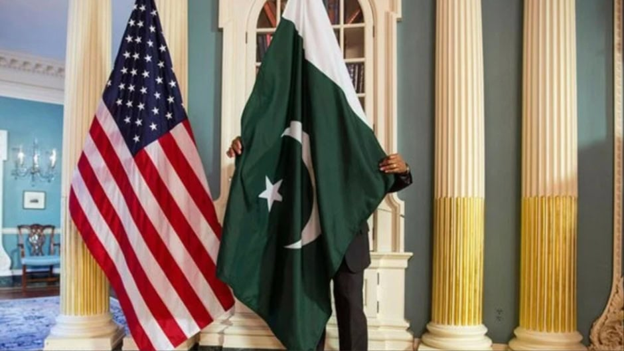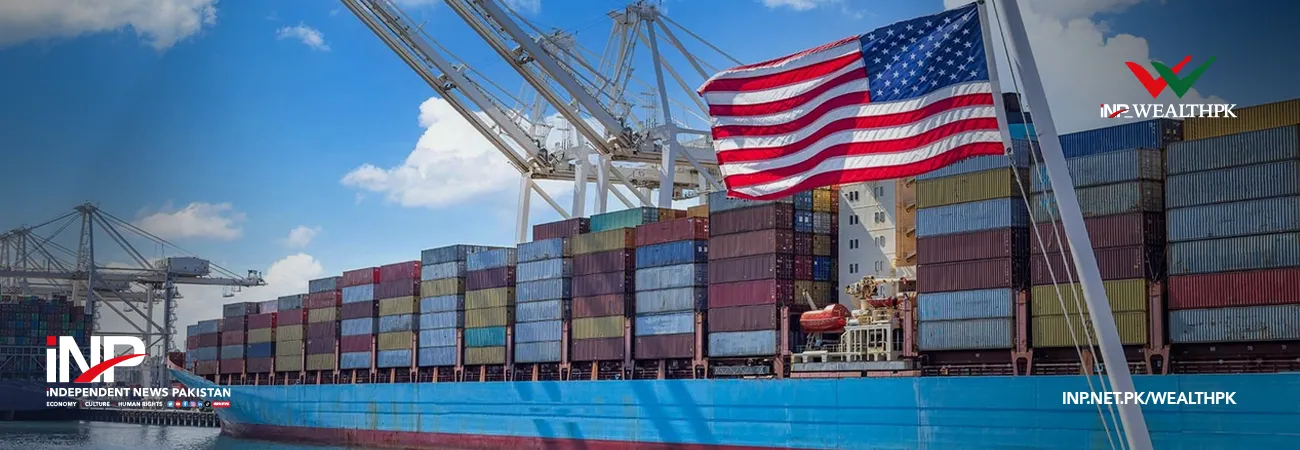INP-WealthPk
Moaaz Manzoor
Pakistan faces economic challenges due to the US-imposed 29% tariff on its exports, necessitating strategic diversification, efficiency improvements, and investment in high-potential sectors to mitigate long-term risks, reports WealthPK.

While initially perceived as a correction to trade imbalances, the move is now being assessed for its deeper consequences on Pakistan’s export-driven industries. Experts highlighted the urgency of strategic economic adjustments to counter the fallout, as textile exports, a major contributor to Pakistan’s economy, bear the brunt of the tariff hike.
Speaking with WealthPK, Dr Abid Qaiyum Suleri, Executive Director at Sustainable Development Policy Institute (SDPI), highlighted the immediate impact of the 29% tariff on Pakistan’s textile exports to the US, stressing that it would significantly affect the country’s export earnings. However, he pointed out that Pakistan’s key textile competitors —Bangladesh, Sri Lanka, Vietnam, and Cambodia — now face even higher tariffs.
“If Pakistan can enhance its quality and competitiveness, it has an opportunity to capture a larger market share.” Suleri noted that while US President Donald Trump termed the imposition of tariffs a "Liberation Day" for America, major economies such as the EU, China, and Japan are likely to retaliate with countermeasures. This escalating trade conflict creates a lose-lose scenario where American consumers may ultimately bear the brunt of higher prices, he warned.
With uncertainty surrounding the future direction of US trade policy, he emphasised that a potential shift in the administration after the next election could alter the tariff regime. “However, in the coming years, it will be a matter of survival of the fittest for export-driven economies.” Given this evolving trade landscape, Suleri underscored the importance of diversifying trade partnerships to minimise dependence on the US market and ensure long-term economic resilience.
Mohsin Masood, an FDI mobilisation specialist at USAID, highlighted the challenges posed by the US's 29% tariff on $5.01 billion of Pakistani exports, particularly textiles. “This is an opportunity for Pakistan to focus on high-potential sectors like ICT to reduce reliance on traditional exports,” he said. Masood pointed out that Pakistan’s ICT sector, with $3.2 billion in exports in FY24, has significant growth potential.
“Revealed Comparative Advantage (RCA) analysis shows Pakistan’s ICT sector is well-positioned to attract FDI, given its skilled workforce, cost-effective production, and favourable policies like tax breaks for IT exports until June 2025,” he noted. Masood recommended prioritising FDI in sectors like advanced textiles, IT, agro-processing, and pharmaceuticals to counter the tariff impact.
He also suggested leveraging joint ventures with China to access the US market. “The special economic zones under CPEC can facilitate this,” he added. Lastly, Masood stressed the need for a comprehensive strategy involving diplomatic engagement and market diversification to strengthen Pakistan’s economic resilience.
Credit: INP-WealthPk













